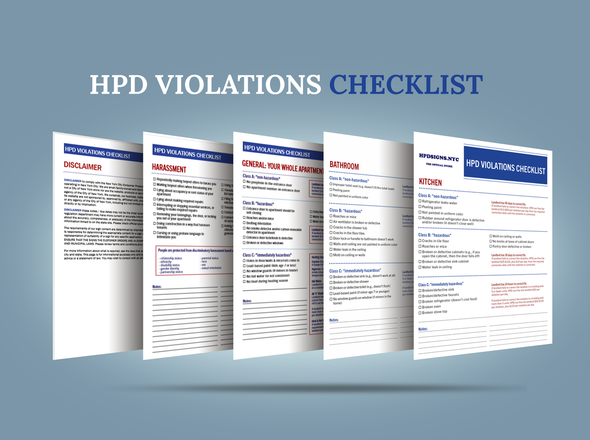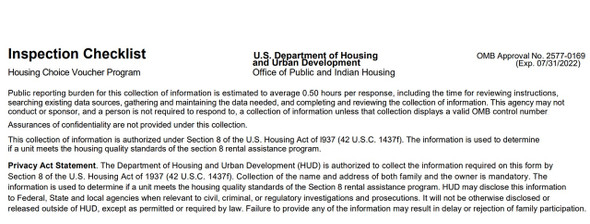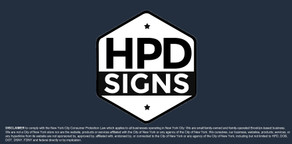hpdsigns.nyc
Close the door notice posted by HPD inspector in my Lobby (pdf file)
- SKU:
- UPC:
- MPN:
- Hpd close the door notice posted
Description
HPD close the door notice posted in Lobby
DOWNLOAD FOR FREE OUR PDF FILE
New York City, known for its towering skyscrapers and dense population, prioritizes the safety and well-being of its residents. Among the numerous regulations enforced by the city, the requirement for self-closing doors in residential buildings has gained significant attention. This measure, mandated by the New York City Department of Housing Preservation and Development (HPD), aims to enhance fire safety and protect residents in the event of an emergency.
The Self-Closing Door Mandate
The self-closing door regulation stipulates that all apartment doors and doors leading to stairwells in residential buildings must be equipped with self-closing mechanisms. This requirement is crucial for preventing the spread of fire and smoke, which can travel rapidly through open doors, endangering lives and causing extensive property damage. By ensuring that doors automatically close after being opened, the risk of fire spreading is significantly reduced, providing residents with valuable time to evacuate and allowing firefighters to contain and extinguish the blaze more effectively.
Compliance and Enforcement
To ensure compliance with this critical safety measure, the HPD conducts random inspections of residential buildings across the city. These inspections are designed to verify that landlords have installed and maintain functional self-closing doors as required by law. During an inspection, HPD inspectors check various aspects of the building, including:
-
Functionality of Self-Closing Mechanisms: Inspectors ensure that the self-closing devices are in proper working order, closing doors fully and securely without manual assistance.
-
Maintenance Records: Landlords are required to keep records of maintenance and repairs related to self-closing doors. Inspectors review these records to ensure regular upkeep and prompt attention to any issues.
-
Resident Complaints: Any complaints from residents regarding non-functional self-closing doors are investigated thoroughly. Landlords must address and resolve such complaints promptly to avoid penalties.
Penalties for Non-Compliance
Failure to comply with the self-closing door requirement can result in significant penalties for landlords. These penalties may include:
-
Fines: Landlords found in violation of the self-closing door mandate can face hefty fines. The amount varies depending on the severity and frequency of the violation.
-
Violations and Orders: The HPD may issue violations and orders to correct the non-compliance. Landlords are given a specific timeframe to address and rectify the issues.
-
Legal Action: In cases of persistent non-compliance, the HPD can take legal action against the landlord, potentially leading to court orders and further financial penalties.
Importance of Compliance
Ensuring that self-closing doors are installed and maintained is not merely a legal obligation but a moral one. The tragic Bronx apartment fire in January 2022, which resulted in the loss of 17 lives, highlighted the critical importance of this safety feature. Investigations revealed that the spread of the fire was exacerbated by a malfunctioning self-closing door. Such incidents underscore the necessity for landlords to adhere strictly to the regulations and for the HPD to enforce them diligently.
Conclusion
The self-closing door requirement in New York City is a vital measure to enhance fire safety and protect residents. Through random inspections and strict enforcement, the HPD ensures that landlords comply with this regulation, thereby minimizing the risk of fire-related tragedies. Landlords must recognize their responsibility in maintaining functional self-closing doors and the severe consequences of non-compliance. Ultimately, these efforts contribute to a safer living environment for all New Yorkers, reflecting the city's commitment to the well-being of its residents.
----------------
Apartment doors and hallway doors are required by law to swing closed and latch by themselves after being opened (self-closing) so that in the case of a fire no one needs to remember to close the door to trap the fire and smoke and stop it from spreading. Doors that stay open allow fire and smoke to spread to hallways and other apartments! Self-closing doors should never be blocked from closing all the way. Property owners and tenants have responsibilities to make sure that everyone stays safe and keeps fire from spreading by making sure apartment and public hallway doors are operating properly. For the self-closing door requirements applicable to property owners, see generally HMC §27-2041.1.
HPD Violations
On every inspection, HPD Inspectors look for self-closing doors in any public areas of a building (hallways, stairways, building entrance) that they pass through during their inspection as well as any apartment doors. If an Inspector finds any defect that stops the door from self-closing, forming a seal when closing and/or latching properly, a class C immediately hazardous violation will be issued. This violation must be corrected within 14 days from receipt of the Notice of Violation by the property owner and certified to the Department as corrected immediately. HPD must reinspect all self-closing door violations within 20 days of the date the violation should be corrected. Failure to properly repair the door or latch will result in HPD attempting to conduct emergency repair work for the door, which will result in charges being placed against the property. HPD may also seek civil penalties in Housing Court if owners fail to correct this condition.
How to Make Sure Self-Closing Doors Are Operating Properly
Test it! Unless a door is visibly damaged, you will not know if it is operating properly until you test it.
- Does the door swing fully shut and close completely after being opened fully?
- If there is a latch, does it engage?
- Note any underlying condition or obstruction that prevents the self-closing door from operating properly:
- Door needs refitting – there is a large gap at the bottom of the door.
- Defective closing mechanism.
- Device or item holding, or capable of holding, the door open.
- Is there any damage to the self-closing mechanism?
- Are the hinges intact, or are they loose or missing?
When testing a door with an overhead closer, open the door as far as possible to check for any hold-open mechanism.
Tenant Responsibilities
Tenants should not tamper with self-closing doors by propping doors open with objects, taping the latch, using wood wedges or kick-down door stops, or overriding the closing device.
As a tenant you should:
- Check your door to make sure it is self-closing
- Contact the property owner of your building if your front door doesn't self-close or if there are other fire safety issues in your building
- Call 311 to file a fire safety issue complaint
Owner Requirements
Property owners should check self-closing doors periodically and must make prompt repairs to door closing mechanisms or defective doors and door frames.
Learn more about your self-closing door responsibiltiies as a property owner
Self-Closing Door Proactive Inspections
Local Law 71 of 2022 mandates that the Department of Housing Preservation and Development (HPD) annually select 300 class A multiple dwellings for proactive inspections of self-closing doors throughout the buildings selected.
- HPD selects 300 class A multiple dwellings based on factors including complaints received, violations issued and other data analytics from the Department, the Department of Buildings and the Fire Department related to conditions which could be indicative of fire safety issues. Exact criteria are available in HPD’s Rules regarding the program.
- Owners of buildings selected for proactive self-closing door inspections are notified by HPD by mail that their building will be subject to an inspection of ALL self-closing doors in common areas, public spaces, hallways, corridors, and apartment doors, where accessible. Notifications encourage owners to ensure all doors in common areas, public spaces, hallways, and at apartment door entrances are properly self-closing and fire-proof prior to inspection by HPD.
- Violations are issued when doors are observed to not be functioning properly.
- Buildings which fail to correct the conditions are subject to emergency repair activities and civil penalties.
- HPD is required to post a detailed report about the buildings and inspection results for self-closing door inspections once a year.
- FY2024 report (to be posted by September 30, 2024).
DISCLAIMER these codes may not be the most recent version. The State / federal or other regulation department may have more current or accurate information. We make no warranties or guarantees about the accuracy, completeness, or adequacy of the information contained on this site or the information linked to on the state site. Please check official sources. The requirements for detector are determined by intended use and by applicable regulation. The BUYER is responsible for determining the appropriate detector needed. WE make no warranty or representation of suitability of a detector to any code or for any specific application. IT IS THE CUSTOMER'S RESPONSIBILITY TO ENSURE THAT THE DETECTORS THE CUSTOMER ORDERS ARE IN COMPLIANCE WITH ALL STATE, FEDERAL, LOCAL, AND MUNICIPAL LAWS. Please review terms and conditions prior to purchase. For more information about what is required, see the laws that are referenced and the rules applicable to your city and state. This page is for informational purposes only and is not intended as legal advice, professional advice or a statement of law. You may wish to consult with an attorney.
Related Products
Related Products


hpd Self-Closing Doors flyer (pdf file)
hpdsigns.nyc


HPD Inspector checklist- Inspection checklist (pdf file)
hpdsigns.nyc

January 2026 package of HPD-required notices for landlords (pdf file)

In a Fire, Close All Doors Behind You Sign - HPD REQUIRED SIGN (pdf file- CODE)
hpdsigns.nyc


